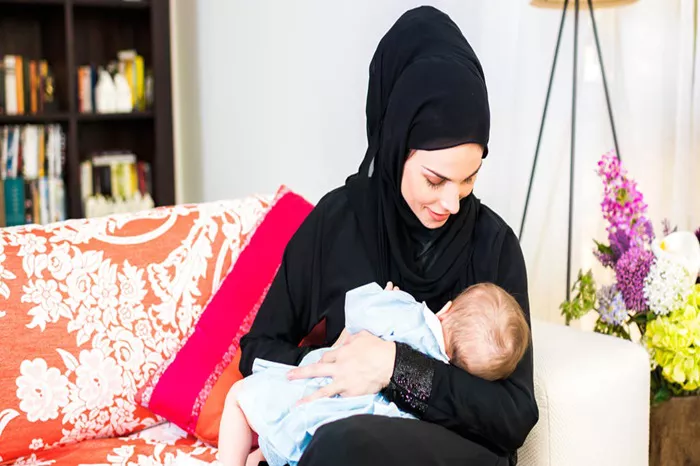Breastfeeding is highly regarded in Islam. It is considered not only a natural act of nurturing but also a religious duty. Islamic teachings highlight the importance of breastfeeding for the well-being of both the mother and the child. This article explores 18 benefits of breastfeeding in Islam, emphasizing its spiritual, physical, and emotional significance.
18 Benefits of Breastfeeding in Islam
1. Obedience to Allah’s Command
Breastfeeding is encouraged in the Quran. It is a way to obey Allah’s command. This obedience brings spiritual satisfaction.
2. Strengthening the Mother-Child Bond
Breastfeeding creates a close bond. This bond fosters a sense of security. It strengthens the emotional connection between mother and child.
3. Health Benefits for the Child
Breastfeeding provides essential nutrients. It strengthens the child’s immune system. It reduces the risk of infections and diseases.
4. Health Benefits for the Mother
Breastfeeding helps in postpartum recovery. It reduces the risk of breast and ovarian cancers. It helps in managing postpartum weight.
5. Natural Contraception
Breastfeeding can delay the return of menstruation. This acts as a natural form of birth control. It helps in spacing pregnancies naturally.
6. Economic Benefits
Breastfeeding is cost-effective. It eliminates the need for formula milk. It reduces healthcare costs by preventing illnesses.
7. Environmental Benefits
Breastfeeding is environmentally friendly. It produces no waste. It reduces the need for manufacturing and packaging formula.
8. Enhancing Child’s Intelligence
Breastfeeding is linked to better cognitive development. Children who are breastfed tend to have higher IQs. They perform better academically.
9. Emotional Well-being of the Child
Breastfeeding provides comfort. It soothes the child during distress. It promotes emotional stability and mental health.
10. Following the Example of the Prophet
The Prophet Muhammad encouraged breastfeeding. His wives and daughters breastfed their children. Following their example is a way to practice Sunnah.
SEE ALSO: 18 Benefits of Hand Expressing Milk
11. Community Support and Encouragement
Islamic communities support breastfeeding. They provide a network of encouragement. This support is vital for new mothers.
12. Promoting Generosity and Sacrifice
Breastfeeding is an act of giving. It teaches mothers selflessness. It promotes the value of sacrifice for the well-being of others.
13. Spiritual Rewards
Breastfeeding is seen as an act of worship. It is believed to earn rewards from Allah. Mothers gain spiritual merit for their efforts.
14. Fulfilling Parental Responsibilities
Breastfeeding is part of a parent’s duty. It fulfills the responsibility of providing for the child. It ensures the child’s optimal growth and development.
15. Enhancing Maternal Confidence
Breastfeeding empowers mothers. It boosts their confidence in their ability to nurture. It provides a sense of accomplishment and satisfaction.
16. Social Integration
Breastfeeding in public is accepted in Islamic cultures. It integrates mothers into social activities. It normalizes breastfeeding in society.
17. Promoting Physical Comfort
Breastfeeding is physically comforting for the child. It provides warmth and closeness. It helps in regulating the child’s body temperature.
18. Supporting Natural Child Rearing
Breastfeeding aligns with natural parenting. It supports attachment parenting practices. It fosters a holistic approach to child-rearing.
Conclusion
Breastfeeding holds profound significance in Islam. It encompasses spiritual, physical, and emotional benefits. By adhering to the practice of breastfeeding, Muslim mothers fulfill a divine command, nurture their children optimally, and gain numerous personal and societal advantages. The emphasis on breastfeeding in Islamic teachings reflects its holistic benefits and underscores its importance in fostering a healthy and balanced upbringing.
FAQs
Can I feed my husband my breast milk?
In Islam, feeding breast milk to an adult, including one’s husband, is generally discouraged and considered inappropriate. Breast milk is primarily intended for infants. The practice of feeding breast milk to an adult can lead to confusion regarding familial and social relationships, which are clearly defined in Islam. Islamic jurisprudence largely emphasizes that breast milk should be used for the nourishment of infants and young children to help them grow and develop.
What is the reward for breastfeeding in Islam?
Breastfeeding is considered a virtuous act in Islam. It is seen as a form of worship and an act of charity. The rewards for breastfeeding include:
1. Spiritual Rewards
Breastfeeding mothers are believed to earn continuous rewards (sadaqah jariyah) for nurturing and caring for their children.
2. Obedience to Allah
Following the guidance in the Quran to breastfeed earns the mother Allah’s pleasure and blessings.
3. Rewards in the Hereafter
Mothers who breastfeed are believed to be rewarded in the hereafter for their patience, dedication, and selflessness.
4. Emotional Satisfaction
The act of breastfeeding provides emotional and psychological satisfaction, contributing to a sense of fulfillment and happiness.
What did the prophet say about breastfeeding?
The Prophet Muhammad (peace be upon him) emphasized the importance of breastfeeding. Some key points include:
1. Recommendation for Two Years
The Prophet endorsed the Quranic guidance that mothers should breastfeed their children for up to two years if possible.
2. Rights of the Child
The Prophet highlighted that breastfeeding is a right of the child. Mothers are encouraged to provide this natural nourishment.
3. Encouragement to Mothers
The Prophet Muhammad encouraged mothers to breastfeed, recognizing the health and emotional benefits it provides.
4. Breastfeeding and Family Bonds
The Prophet emphasized the role of breastfeeding in strengthening the bond between mother and child, contributing to a loving and nurturing family environment.


